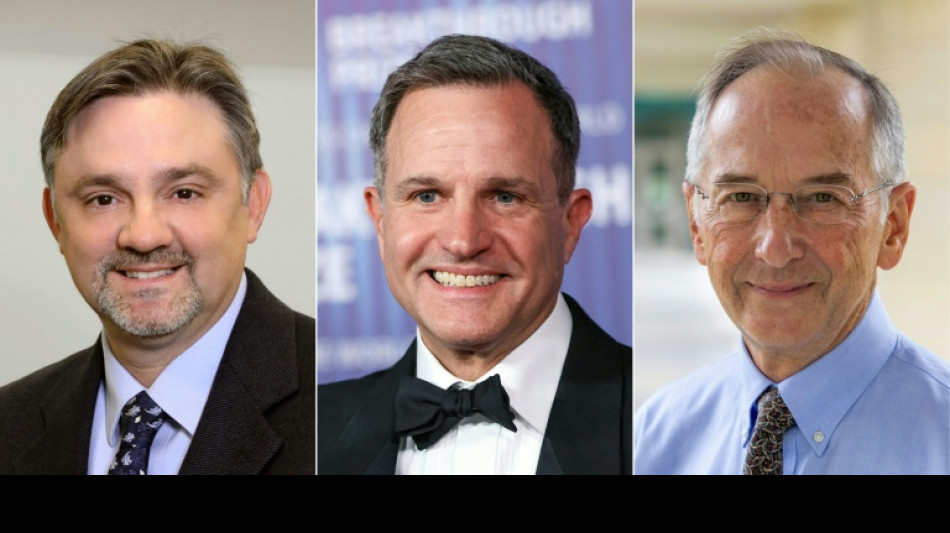
-
 Vonn to provide injury update as Milan-Cortina Olympics near
Vonn to provide injury update as Milan-Cortina Olympics near
-
France summons Musk for 'voluntary interview', raids X offices

-
 Stocks mostly climb as gold recovers
Stocks mostly climb as gold recovers
-
US judge to hear request for 'immediate takedown' of Epstein files

-
 Russia resumes large-scale strikes on Ukraine in glacial temperatures
Russia resumes large-scale strikes on Ukraine in glacial temperatures
-
Fit-again France captain Dupont partners Jalibert against Ireland

-
 French summons Musk for 'voluntary interview' as authorities raid X offices
French summons Musk for 'voluntary interview' as authorities raid X offices
-
IOC chief Coventry calls for focus on sport, not politics

-
 McNeil's partner hits out at 'brutal' football industry after Palace move collapses
McNeil's partner hits out at 'brutal' football industry after Palace move collapses
-
Proud moment as Prendergast brothers picked to start for Ireland

-
 Germany has highest share of older workers in EU
Germany has highest share of older workers in EU
-
Teen swims four hours to save family lost at sea off Australia

-
 Ethiopia denies Trump claim mega-dam was financed by US
Ethiopia denies Trump claim mega-dam was financed by US
-
Norway crown princess's son pleads not guilty to rapes as trial opens

-
 Russia resumes strikes on freezing Ukrainian capital ahead of talks
Russia resumes strikes on freezing Ukrainian capital ahead of talks
-
Malaysian court acquits French man on drug charges

-
 Switch 2 sales boost Nintendo profits, but chip shortage looms
Switch 2 sales boost Nintendo profits, but chip shortage looms
-
China to ban hidden car door handles, setting new safety standards

-
 Switch 2 sales boost Nintendo results but chip shortage looms
Switch 2 sales boost Nintendo results but chip shortage looms
-
From rations to G20's doorstep: Poland savours economic 'miracle'

-
 Russia resumes strikes on freezing Ukrainian capital
Russia resumes strikes on freezing Ukrainian capital
-
'Way too far': Latino Trump voters shocked by Minneapolis crackdown

-
 England and Brook seek redemption at T20 World Cup
England and Brook seek redemption at T20 World Cup
-
Coach Gambhir under pressure as India aim for back-to-back T20 triumphs

-
 'Helmets off': NFL stars open up as Super Bowl circus begins
'Helmets off': NFL stars open up as Super Bowl circus begins
-
Japan coach Jones says 'fair' World Cup schedule helps small teams

-
 Equities and precious metals rebound after Asia-wide rout
Equities and precious metals rebound after Asia-wide rout
-
Do not write Ireland off as a rugby force, says ex-prop Ross

-
 Winter Olympics 2026: AFP guide to Alpine Skiing races
Winter Olympics 2026: AFP guide to Alpine Skiing races
-
Winter Olympics to showcase Italian venues and global tensions

-
 Buoyant England eager to end Franco-Irish grip on Six Nations
Buoyant England eager to end Franco-Irish grip on Six Nations
-
China to ban hidden car door handles in industry shift

-
 Sengun leads Rockets past Pacers, Ball leads Hornets fightback
Sengun leads Rockets past Pacers, Ball leads Hornets fightback
-
Waymo raises $16 bn to fuel global robotaxi expansion

-
 Netflix to livestream BTS comeback concert in K-pop mega event
Netflix to livestream BTS comeback concert in K-pop mega event
-
Rural India powers global AI models

-
 US House to vote Tuesday to end shutdown
US House to vote Tuesday to end shutdown
-
Equities, metals, oil rebound after Asia-wide rout

-
 Bencic, Svitolina make history as mothers inside tennis top 10
Bencic, Svitolina make history as mothers inside tennis top 10
-
Italy's spread-out Olympics face transport challenge

-
 Son of Norway crown princess stands trial for multiple rapes
Son of Norway crown princess stands trial for multiple rapes
-
Side hustle: Part-time refs take charge of Super Bowl

-
 Paying for a selfie: Rome starts charging for Trevi Fountain
Paying for a selfie: Rome starts charging for Trevi Fountain
-
Faced with Trump, Pope Leo opts for indirect diplomacy

-
 NFL chief expects Bad Bunny to unite Super Bowl audience
NFL chief expects Bad Bunny to unite Super Bowl audience
-
Australia's Hazlewood to miss start of T20 World Cup

-
 Bill, Hillary Clinton to testify in US House Epstein probe
Bill, Hillary Clinton to testify in US House Epstein probe
-
Cuba confirms 'communications' with US, but says no negotiations yet

-
 Iran orders talks with US as Trump warns of 'bad things' if no deal reached
Iran orders talks with US as Trump warns of 'bad things' if no deal reached
-
From 'watch his ass' to White House talks for Trump and Petro


Scientists behind breakthrough cystic fibrosis treatment awarded top US prize
Cystic fibrosis was once a dire, likely deadly diagnosis, destroying a patient's ability to breathe and digest food -- but a revolutionary new treatment offers reason for hope.
And on Thursday the three scientists who developed the clinical advance were awarded America's most prestigious scientific award, taking home the Lasker prize.
The top honor is frequently cited as a pre-cursor for a potential Nobel, and this year it recognized the pulmonologist Michael Welsh along with researchers Jesus Gonzalez and Paul Negulescu from the US laboratory Vertex.
Their research has shed light on the causes of the disease and given rise to a new class of innovative drugs, including the flagship treatment Kaftrio -- known as Trikafta in the United States -- which are capable of stabilizing the otherwise debilitating condition.
"It's unbelievable. It's better than I ever hoped," Welsh told AFP. "You see these kids and they look healthy and they're not coughing. They're running around and playing."
"I almost can't believe it. Then they go, and they're getting married and they're having kids, and they're getting on with their lives."
That reality stands in sharp contrast to Welsh's memories from the early days of his career, when a cystic fibrosis diagnosis was a likely death sentence in childhood or adolescence.
The new award-winning treatment has been hailed as "revolutionary" by patient advocacy organizations.
It works by addressing the underlying causes of the inherited disease -- which wreaks havoc on the lungs and digestive system -- rather than its symptoms.
- 'Not totally broken' -
Some 100,000 people worldwide are estimated to suffer from cystic fibrosis, in which sticky mucus builds up in the lungs, digestive tract and other parts of the body.
After the 1989 discovery of the CFTR gene -- whose mutation was identified as the cause of the disease -- Welsh began dissecting the problem with fellow researchers.
"We thought, if we understand how CFTR works, we have a chance of fixing it," he said.
Gaining a better understanding of how the protein that the gene codes for led the pulmonologist down a path seeking how genetic mutations impaired its function.
Welsh identified two major anomalies caused by the most common mutation: a trapping of sorts of the protein within the cell, and its reduced performance.
The medical breakthrough resulted from experiments, notably some that showed how lowering temperature could help release the trapped protein.
"That meant it was not totally broken," Welsh remembered enthusiastically.
Armed with these discoveries, the American Cystic Fibrosis Foundation then approached researchers Gonzalez and Negulescu, who began studying the possibility of chemically reversing the identified malfunctions.
- 'Panning for gold' -
The notion of gene therapy -- which would aim to directly reverse the gene mutations -- had seemed on paper to be the simplest route.
But when it didn't work as hoped, patient organizations began to explore other options.
Gonzalez developed an innovative research technique using dyes that allowed for testing thousands of chemical compounds in record times.
"Without the screening, we would never have found these molecules," he said.
It was process akin to "panning for gold," recalled Negulescu.
But ultimately their dogged work paid off; they identified a handful of molecules that led to the birth of a new class of treatments.
Those molecules proved capable of restoring mobility to the stuck protein, and improving its function.
Kaftrio/Trikafta -- approved stateside in 2019 and classified by the World Health Organization as an essential treatment in 2025 -- is among them.
But their significant cost poses an obstacle for some patients, especially as the treatment is lifelong, and the therapy is ineffective in a small minority of patients including those with different mutations.
"The work is not done," said Negulescu.
I.Saadi--SF-PST



